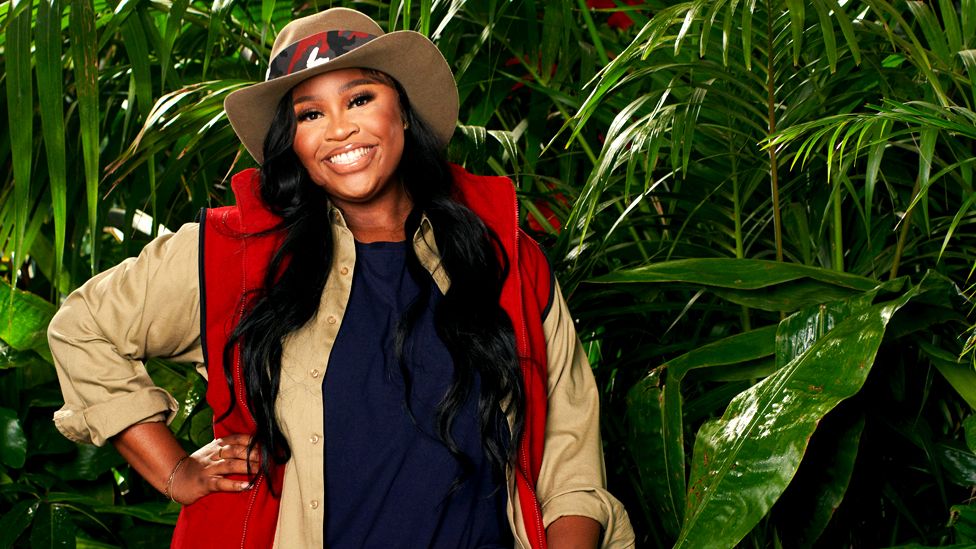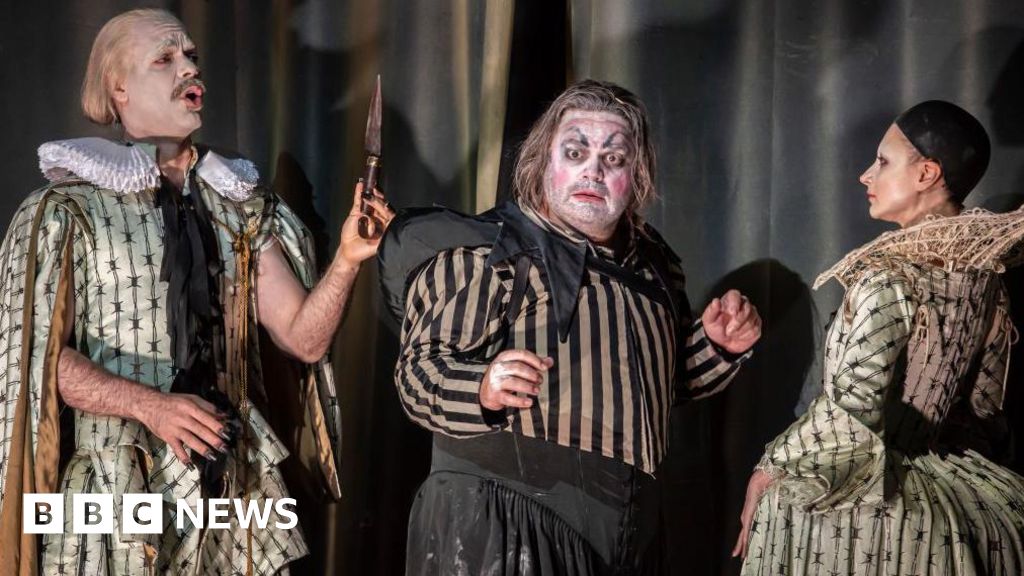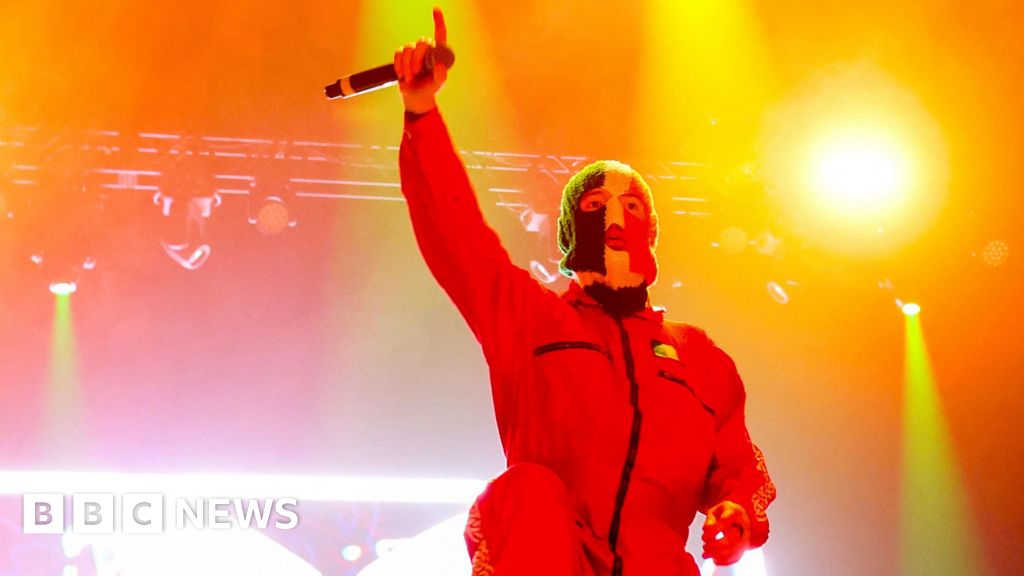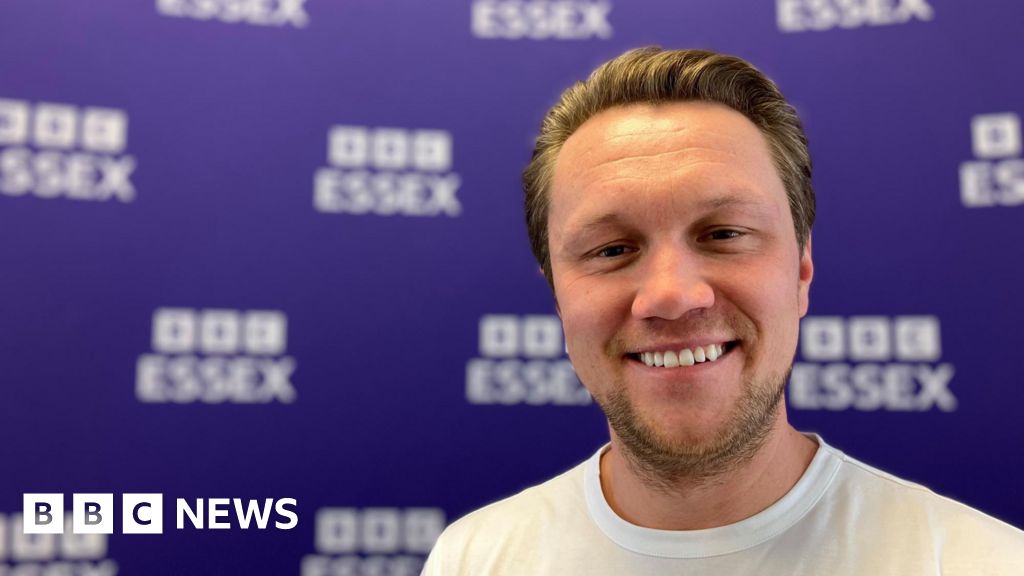ARTICLE AD BOX
 Image source, ITV
Image source, ITV
Nella Rose has just appeared on I'm A Celebrity Get Me Out Of Here
By Deedee Kyeremateng & Andre Rhoden-Paul
BBC News
Have you seen the words UK beast being used on social media lately?
If you have, that's because the derogatory phrase is trending. And some black women say they are being singled out.
Nella Rose was called the term after a row with Fred Sirieix while she was on I'm A Celebrity... Get Me Out Of Here.
The insult compares women to an animal. According to an entry in slang bible Urban Dictionary, it means a "masculine and rude" woman.
One of the earliest uses of the phrase can be traced back to a 2022 viral post in which a man appears to hand out lollipops to women on a French street.
"Look how attractive and feminine French women are compared to beasts in the UK," was the caption accompanying it.
'Another way for people to bring me down'
In the last few months its use has surged on social media, sparking a conversation among black women on how they feel it is targeting them.
TikTok creator Anthonia Edomwande, who says she has been called the phrase multiple times on the platform, feels like the insult is being used to degrade black women.
"I just feel like the terminology is just like another way for people to bring me down... it's not a nice thing to say or hear," the 20-year-old from east London said.
Anthonia, who posts videos about her life, said she had been called the phrase multiple times
"I tend to get violated on my physical appearance and afro-centric features. On social media I receive it ten times more because no one knows who it is behind the screen."
She thinks the phrase is based on stereotypes that black women are loud and dramatic.
Hindia Andries, who posts beauty videos, also made a video about the trend. She said the phrase is being used to attack a black girl's looks because she might not be "conventionally attractive".
And actress and director Kelechi Okafor appeared on told BBC Radio 4 AntiSocial and described the beast-like comments she saw about Nella as horrific.
"Often times black women are compared to apes, it happened to Michelle Obama and often times to Serena Williams," she said. "I don't she necessarily handled it in the best way, but what I was seeing was disproportionate to what she said."
Speaking to BBC News, Dr Kadian Pow, lecturer in Sociology and Black studies at Birmingham City University, said the phrase was another way of denying black women their femininity, related to the sapphire trope - historically used against black women seen as loud or aggressive.
She said: "Misogynoir is a targeted discrimination and hatred of black women in particular. Terms like UK beast perpetuate misogynoir because they aim to humble or put black women in a box.
"And they're aimed at controlling and getting black women to behave in a more feminine or less loud way, and get them to not speak their mind.
"That's what these terms aim to do - to make black women feel small and feel like they can't speak up or stand up for themselves."
'An opportunity to be racist'
Anthonia said black men have mainly called her it, which she puts down to "self-hate", but now the phrase has been picked up by other races, she said.
"It stems from black men, but its given white people an opportunity to use it in their way and be racist with it," she added.
Responding to a BBC News TikTok video on the UK beast, a number of users said the phrase was to do with behaviour and not to do with race, pointing out white girls have been called it.
But Dr Pow said that suggestion was a cop out as the phrase was still associated with anti-blackness.
"If it starts within the black community and it gets applied to black women and spread out from there, it is still anti-black and rooted in misogynoir."
Black men have also got involved in the conversation, with many calling out its use within the community on TikTok.
Dr Pow added: "Different communities undergoing oppression find ways of taking it out on someone they deem as below them on the ladder.
"And black men often have no other target to achieve that with in terms of power than black women, so they unload their insecurities and fears onto black women.
"I do think they have responsibility with how they denigrate and address black women with this term."
Have you heard of the phrase 'UK beast'?
You can listen to more on this issue on the BBC Radio 4 AntiSocial podcast:

 1 year ago
25
1 year ago
25








 English (US) ·
English (US) ·